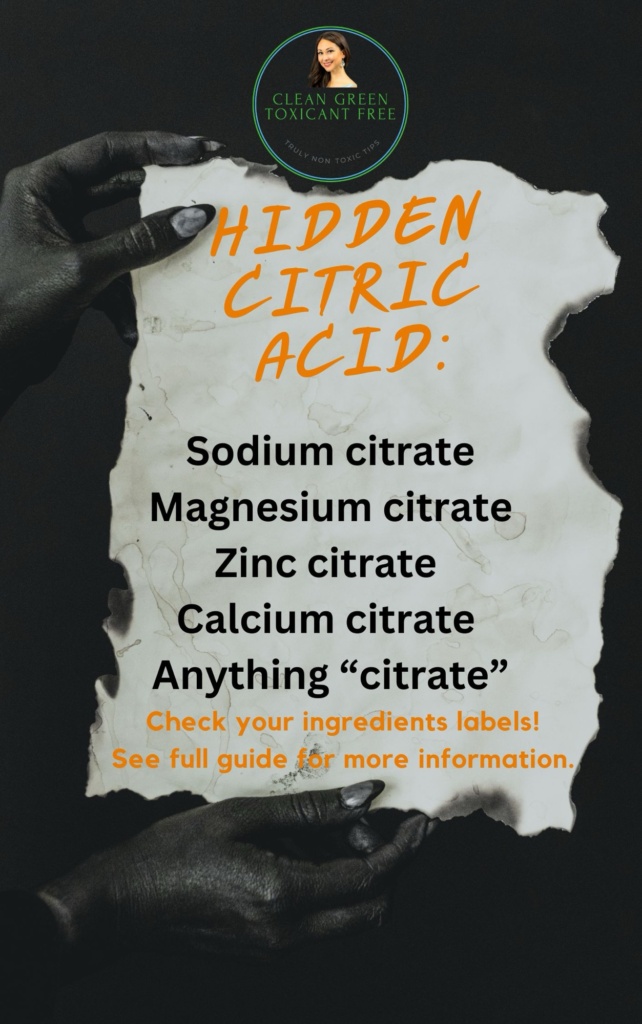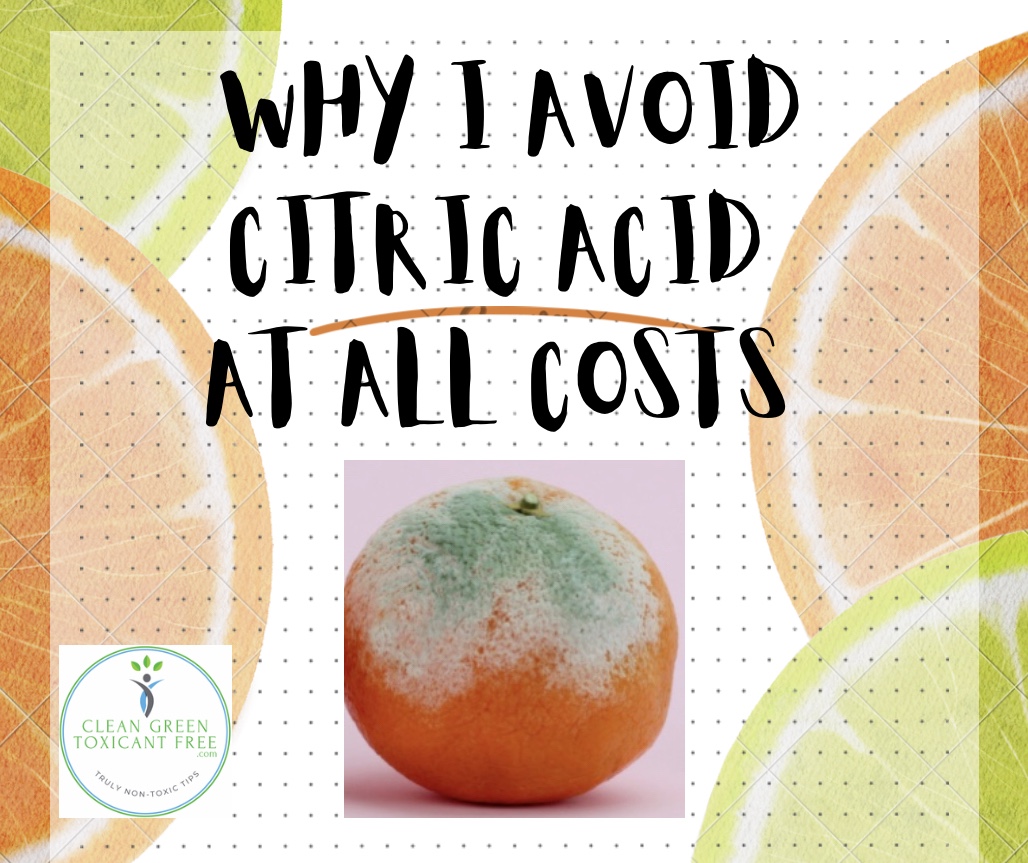Citric acid (and any ingredient with the word “citrate” sounds innocent, but is one of the things I 💯 refuse to consume at all. It is one the most common food additives in the world and unfortunately it’s allowed even in organic products. As always, what I share is not “fear mongering.” It’s meant to spread factual awareness of something that is not well known, and help people avoid this harmful ingredient.
When you see citric acid on ingredients labels, you may assume that it sounds very natural and safe. But you may be shocked to find out that it is produced using toxic mold!
Watch out for it in personal care products (shampoo, face cream, etc.), packaged food and snacks, pasta sauce, supplements, and so many more things.
Although citric acid is naturally found in citrus fruits (and is safe in that form), it’s too expensive to mass produce, so what you see in products is pretty much always synthetic versions produced using the black mold Aspergillus niger!
Even if companies claim to use natural sources for their citric acid, such as fermented cassava, it still uses mold (source). It’s usually produced using genetically modified black mold grown on GMO corn syrup. More sources.
Other ingredients to watch out for are anything with the word “citrate,” which indicates derivatives using citric acid (the salts, esters, and the polyatomic anion found in solutions and salts of citric acid.). This includes Sodium citrate, Magnesium citrate, Zinc citrate, Calcium citrate, etc.

Citric acid is added to so many products and supplements; it is used for flavoring and preserving foods, and also to stabilize or preserve medicines and personal care products, and as a cleaning agent.
“No scientific studies exist investigating the safety of manufactured citric acid when consumed in large amounts for long periods.
Still, there have been reports of sickness and allergic reactions to the additive. One report found joint pain with swelling and stiffness, muscular and stomach pain, as well as shortness of breath in four people after they consumed foods containing manufactured citric acid.
These same symptoms were not observed in people consuming natural forms of the acid, such as lemons and limes. Researchers acknowledged that they couldn’t prove the manufactured citric acid was responsible for those symptoms but recommended that its use in foods and beverages be further studied.
In either case, the scientists suggested that the symptoms were most likely related to the mold used to produce the citric acid rather than the compound itself.” –Healthline
Despite all this, citric acid is “generally recognized as safe” but that doesn’t mean much. Also, some people claim that because the mold is grown under controlled conditions, it may not be as harmful. But we don’t actually know what kind of quality control they use. I’ve seen countless accounts of people having reactions to citric acid, and it’s important to remember that people can be sensitive or allergic to anything.
There is also this scientific paper: “Potential role of the common food additive manufactured citric acid in eliciting significant inflammatory reactions contributing to serious disease states: A series of four case reports.”
Personally, the reason why I have to avoid citric acid 💯 is because it causes behavioral/ rage issues for me if I either consume or use skin products that contain citric acid. I suspect many people have this reaction but don’t realize it. I believe it stems from the inflammation mentioned in the previous paragraph.
Mercury contamination is also a risk. Studies show the three most common foods contaminated by mercury are high fructose corn syrup, sodium benzoate (a preservative), and citric acid.
News headlines warned about the mercury content in high fructose corn syrup after a 2009 study published in Environmental Health analyzed the level of mercury contamination from the chlor-alkali process. Citric acid is processed in the same way.
Here is a post I shared on Facebook that explains the MCA (manufactured citric acid) form of citric acid, and one instance that the natural form is used.
For all these reasons, I avoid citric acid at all costs. Someone asked me if that meant going without some types of products, but fortunately I have been able to find any product I need, without citric acid. It can be done! Here is my “master list” post with all my favorite products. Also check out my snack post and post on baby wipes.
This issue is one of the things that distinguishes me from other experts and influencers in this field, because pretty much no one else considers it in their recommendations of what to avoid.
Please follow my Facebook page for more. Thanks!
***Thank you for visiting Clean Green Toxicant Free! I started this site simply because I want to help people and share information. I dig deep and seek the most truly non-toxic products, without bias. I am not paid to write anything and I don’t sell anything. In 2022 I became an Amazon Associate, which does NOT bias my recommendations. I may earn small dividends from purchases made after clicking my clearly labeled links (even if you don’t buy those specific items), which covers the costs I pay to maintain this site. More info is on my About page.***

